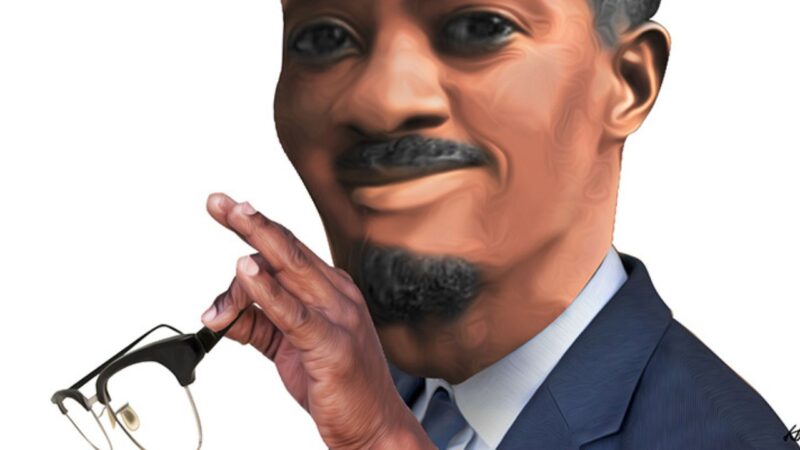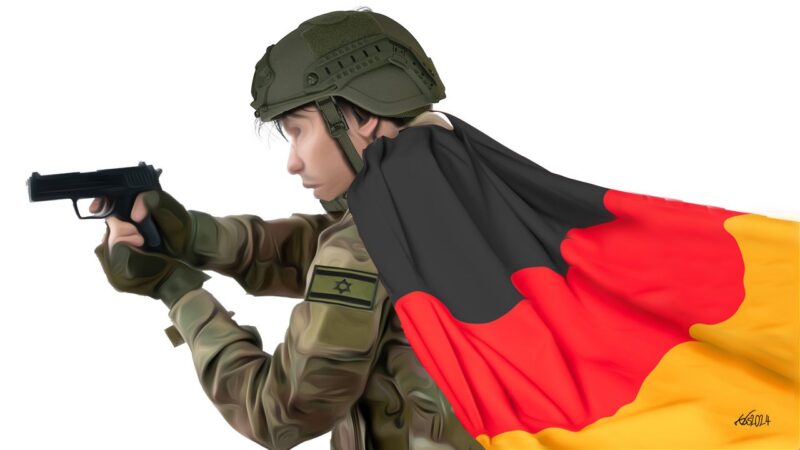The British government has sparked outrage—and applause from right-wing voters—with its new plan to deport asylum seekers to Rwanda.
The plan applies only to single men, who would be given one-way plane tickets to a country 4,000 miles away, where their asylum claims will be processed. Even if they are granted asylum, the men would not be allowed back to Britain. Rejected applicants will be deported again. The idea is to deter migrants, stop people smugglers, and ultimately end mass immigration. The scheme particularly targets migrants and asylum seekers who cross the English Channel from France in rubber dinghies, after paying a fortune to people traffickers. Some 6,000 people have crossed the channel this way so far this year, almost three times the number that had crossed by this time last year. The migrants largely come from Syria, Afghanistan, South Sudan, Somalia, Myanmar and Venezuela.
The irony is that the controversial plan is the brainchild of Home Secretary Priti Patel, the daughter of Ugandan-Asian immigrants who arrived in Britain in the 1960s. Under her hostile immigration regime, it is highly likely that her own parents would not have been allowed in – something she has admitted. It is also ironic that the government says Rwandan asylum seekers will still be allowed into Britain.
The government is selling this as a great opportunity for migrants to start a new life in a country they call “fundamentally safe and secure”. The reality is that Rwanda is a dictatorship, with a very poor human rights record, intolerant attitudes to LGBTI+ people, and a tendency to crush any kind of dissent. Migrants fleeing detention and torture could now experience further trauma. An earlier deal that Rwanda cut with Israel, between 2014 and 2017, failed; many of the asylum seekers reportedly left Rwanda almost immediately, and used people smugglers to try and return to Europe.
The government has faced increasing pressure from voters to curb immigration. In the Brexit referendum in 2016, after which the UK left the European Union, the “Leave” camp promised to end illegal immigration. But the dangerous channel crossings have risen sharply under Prime Minister Boris Johnson, much to the anger of Tory voters. This new plan was hatched after failed attempts to collaborate with France to stop the boats. Initial costs are projected to be up to £30,000 per migrant, although the actual cost is likely to be much higher. Rwanda will receive £120 million from Britain for “economic development”.
Cynics say this is a distraction and a “dead cat” story, announced just before the May council elections when the Tories fear electoral defeat. Johnson faces leadership challenges, amid fierce criticism of the so-called “partygate” scandal which has seen him, his wife and senior No. 10 staff investigated by the police and fined for breaking COVID lockdown laws.
The United Nations, human rights lawyers, opposition parties and refugee bodies have condemned the plan as criminal, inhumane, cruel, and unworkable. Some leading Tories have also condemned it, notably former ministers Andrew Mitchell and Rory Stewart.
Other reactions
“I think it’s a way of getting rid of people the government doesn’t want, dumping them in a distant African country, and they’d have no chance of getting out of there again,” said Lord Alf Dubs, 89, a Labour peer who sits in the House of Lords. Lord Dubs came to Britain as a child fleeing the Nazis, via the Kindertransport scheme before World War Two, which saved thousands of young Jewish lives. He campaigns on refugee and asylum issues.
The Archbishop of Canterbury, Justin Welby, the most senior cleric in the Church of England, condemned the plan in his Easter Sunday sermon. He said it raises “serious ethical questions” and cannot “stand the judgement of God”. In response, Jacob Rees-Mogg, the Minister for Brexit Opportunities, defended the policy as “almost an Easter story of redemption”.
The United Nations, human rights lawyers, opposition parties and refugee bodies have condemned the plan as criminal, inhumane, cruel, and unworkable.
Unions representing civil servants who work at the Home Office warn of mass walkouts and requests for transfer to other government departments if this plan goes ahead. Human rights lawyers and refugee bodies say they will vigorously fight the scheme in the courts. There is also likely to be strong opposition from politicians in both houses of parliament (the Commons and the Lords).
But Brexit voters are thrilled—this is what they voted for. Typical comments posted online in the right-wing media include: “Send them all back to Africa!” … “With the policy all the way! Brilliant plan.” … “The majority [of migrants] are not asylum seekers or refugees but economic migrants who are just jumping the queue illegally.” … “This is the best idea the government have come up with in a long time, make it retrospective and get rid of what is already here, women and children as well, get on with it.” Different reactions on Twitter include this: “The Rwandan one-way ticket scheme is rooted in the fundamentally racist notion that all black people are ‘the same’ and can simply ‘get sent back’ to Africa.”
Meanwhile, British people have largely welcomed government plans to bring Ukrainian refugees to the UK, at least temporarily. Perceptions of the cross-channel migrants as black and Muslim (many are neither) are compared to nice white Christian Ukrainians who “share our culture”. (In fact, Ukraine has one of the largest Jewish populations outside Israel.)
Antecedents
Britain has form when it comes to deportation. Most famously, more than 162,000 convicts were deported to Australia between 1788 and 1868, the majority for petty crimes such as stealing a sheep, cutting down a tree or poaching. In the early 18th century, it also deported convicts to the American colonies to work; the alternative was execution. Once freed, many of the ex-convicts in Australia stayed there and joined the free settlers. Some rose to prominent positions in society.
British people have largely welcomed government plans to bring Ukrainian refugees to Britain, at least temporarily.
On a much smaller scale, in colonial East Africa the British punished Africans they considered dangerous by sending them into internal exile. They fell into three main groups: political figures like Harry Thuku and Samuel Muindi Mbingu; convicted witches/sorcerers; and prophets or other religious figures. The last group included the Maasai prophet Senteu, half-brother to Paramount Chief Olonana, who was deported to North Nyeri, the Samburu prophet Leaduma (sent first to the coast, then Embu, where he died), and Kamba anti-colonial prophet Ndonye wa Kauti (deported to Lamu). Thuku and Senteu were allowed home; Mbingu, Leaduma and Ndonye were not. A few “undesirable” whites were also deported overseas.
Who would ever have guessed that, decades later, post-colonial Britain would be planning to deport thousands of “undesirables” to the middle of Africa?
Genocide victims made homeless
In an exclusive front-page splash headlined “Priti heartless”, Britain’s Mirror newspaper reported that former genocide victims living in the Hope Hostel in Kigali have been ousted to make way for the migrants. Patel was pictured touring the hostel this week with Rwandan officials, after striking the controversial deal. It was a shelter for traumatised orphans, who are now adults. “I barely know any other home. I was only told about moving out a few days ago,” said one woman.
Rwandans react
In Rwanda and across East Africa, the news that Rwanda is set to receive UK migrants has been received with an unprecedented level of incredulity. In part, this is to do with the fact that the first Rwandans learned of the idea was after the UK press reported it. Those living in the diaspora heard about it first.
“It is astonishing really, but we have become used to these sorts of things happening here,” said a former minister.
Rwanda remains one of the most densely populated countries in the world. In 2019, there were 1,242 people per square mile, making it the world’s 14th most densely populated country. Some of the objections that British voters have against migrants, particularly around the additional pressure on school places, hospital appointments and general access to public services, can be made about Rwanda too.
Given the magnitude of the policy and the potential triggers around community cohesion, it would have been a good idea if the proposal had been debated in parliament before an agreement was reached with the UK. None of the parliamentarians we spoke with knew of the policy before it was announced.
More than 162,000 convicts were deported to Australia between 1788 and 1868, the majority for petty crimes such as stealing a sheep, cutting down a tree or poaching.
“It is ill thought out, and if I am being frank, likely to backfire”, noted the minister. “There are so many loops to this. We already have a significant number of refugees in the country from Burundi and the Democratic Republic of Congo. Some of these, especially the Congolese, are already very difficult to manage. What makes us think we can take on Britain’s migrants?”
In 2018, Rwandan police shot and fatally wounded 12 Congolese refugees who had gathered to demonstrate against a 25 per cent cut in the food provided by the UN refugee agency at a camp in Kiziba, western Rwanda. Rwanda hosts about 174,000 refugees, including 57,000 people from neighbouring Burundi who fled violence in 2015.
It is telling that Rwandan media has almost unanimously stayed clear of the asylum pact despite the furore surrounding the announcement in the UK media. In Rwanda, the few media organisations that still exist have either made a choice not to cover the story, or are waiting to see how it plays out. This explains in part why the Rwandese public has not engaged with the story, even though many might have opinions and things to say about the proposed plan to settle migrants in their communities.
“It is a difficult one,” said a local editor. “But you know how it works. Everyone is waiting to see which way the wind blows. At the end of the day, no one wants to be shut down over Eritreans or Syrians. But generally, there is despondency.”
Tiered asylum system
Questions have also been raised as to how the UK scheme would work vis-à-vis existing refugee schemes in the country. The Rwandan government insists claims will be decided according to existing Rwandan and international law.
In Rwanda and across East Africa, the news that Rwanda is set to receive UK migrants has been received with an unprecedented level of incredulity.
Already, the agreement with the UK appears to be treating UK migrants better. Traditionally, Rwanda has settled refugees and those seeking asylum in refugee camps – away from local communities. By using Hope Hostel to accommodate UK migrants, Rwanda will be offering one set of refugees a form of accommodation that is completely different from the other.
Besides, what is there to prevent those already living in camps from seeking ways to travel to Europe in the hope of being returned? That way, they would have access to hostel accommodation as opposed to camps.
Not all is doom and gloom
The headlines may be brutal, and they are certainly not what the two countries expected when they agreed this deal. Overall, Rwanda stands to gain, at least financially. The estimated £120 million that Rwanda will receive initially is a definite bonus for a country trying to regrow its economy after the COVID-19 pandemic.
The Rwandan government is also using the agreement as proof that countries like the UK have confidence in its policies and governance, and acknowledge it as a worthy partner – a boon for President Paul Kagame, whose style of leadership, especially with regard to opposition politics, has been on the ropes lately.
“For the last 28 years, we have built a country that is united,” government spokesperson Yolande Makolo told Sky News, responding to criticism of the plan from Human Rights Watch. “We have built a country that is stable. We have built a functioning government that provides services for Rwandans. Human Rights Watch might say what they want to say, but that is up to them. It doesn’t mean it is the truth.”








